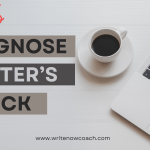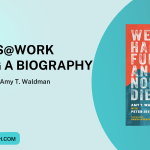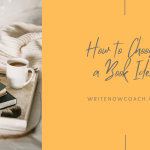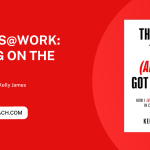Social Media Essentials
 Nearly every day a new social media tool pops onto the market advertising, “You need me!” Email has become almost passé. Why email when you can Facebook, Tweet, Pin, and share with your circle of friends and the world? Most writers think about social media as a tool to increase their platform. We’ve seen other authors leap from being nobody to having a big name because of their social media savvy. But social media can do a lot more for you than make you famous. With the right social media tools, writers can:
Nearly every day a new social media tool pops onto the market advertising, “You need me!” Email has become almost passé. Why email when you can Facebook, Tweet, Pin, and share with your circle of friends and the world? Most writers think about social media as a tool to increase their platform. We’ve seen other authors leap from being nobody to having a big name because of their social media savvy. But social media can do a lot more for you than make you famous. With the right social media tools, writers can:
*discover and research topics
*find and interview experts and sources
*research, quantify, and test the market for their work
*connect with other writers, experts, editors, agents, and publishing professionals
*share, critique, and receive help with their writing
Think of social media as a giant buffet table, laden with delicious foods for every palate and sensibility. The buffet holds more food than any one person can or should consume at one time (or even in a lifetime). Wise eaters must learn to choose the foods that will nourish and sustain them. Here is a list of the social media essentials. Like the basic food groups, these tools will help you to build a strong social media foundation for whatever you want to do online.
*Google Alerts helps you find out what is going on in your field and who is talking about you. Set up Google Alerts on key words in your niche, including your name, to let you know when you pop up online. If you have a common name like Jane Smith, you might try putting quotation marks around your name. If that does not work, add a word that is commonly linked to yours in your writing.
*Blog Search tools. Find out what bloggers in your niche are writing about or check out the book bloggers to research your genre by using one of these tools: Technorati (technorati.com) and Google blogsearch (google.com/blogsearch)
*Home on the web. Create a website or blog to let the world know about you, what you do and write, and how to connect with you.
*Social Conversation, connecting, and research: There are more social networks than I have space to write about. Here are the three big ones: Twitter, Facebook, and LinkedIn.
*Shorten Links: I’ve been using bitly.com for about six months and find it amazingly helpful. The tool not only shortens your links, it also keeps track of clicks so that you can measure your effectiveness and allows you to easily post from their site to both Facebook and Twitter.
*Social Bulletin Board: Pinterest has become my new online playground. More visually attractive than Facebook, Pinterest users create thematic boards (e.g. books I want to read). Users can pin images to their boards from other boards or from most online sites. Click on images to go to the original site (which comes in handy with recipes).
*Help a Reporter Out (HARO). HelpaReporter.com connects journalists with experts. As a journalist or freelance writer writing for a magazine, newspaper, or well-known blog, you can post queries and ask for expert help for your article. As an expert, you can subscribe to the list and watch for queries in your field.
Your turn. What social media applications or tools have made your writing life easier or helped you increase your platform? Leave your recommendations in the comment section below!















Your post about social media is a good one. As you know I am a baseball writer. Naturally, one of my platforms is a baseball blog that has a collective circulation of over 1, 789,000 to baseball fans. I like your comment referencing social media to a giant buffet table with so much to choose from and use.
Wow, that is quite a circulation!
You mentioned the one’s I currently use, but I really just wanted to say thanks for all the great content you share on your blogs. It’s been very useful and educational.
Thanks, Jorge!